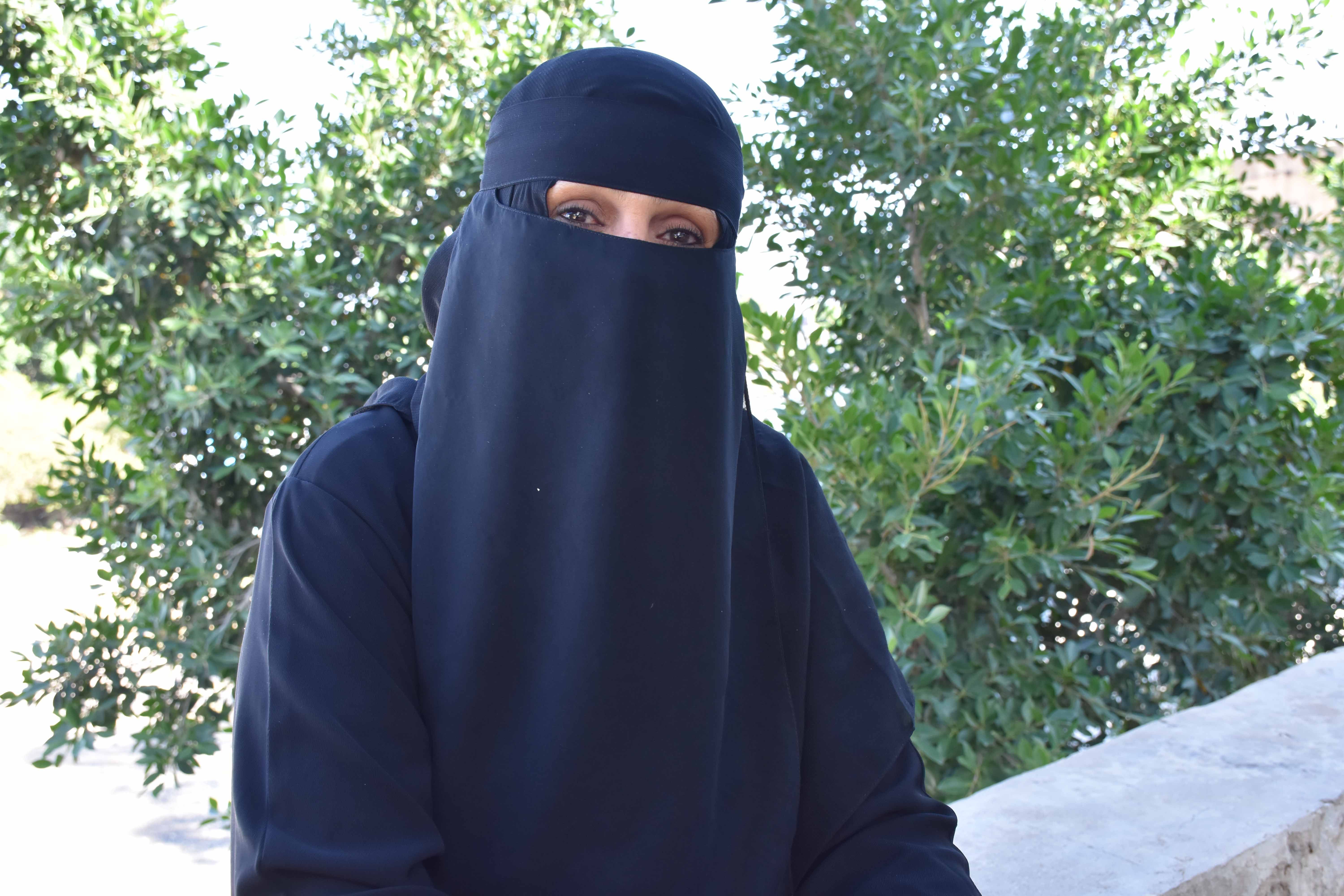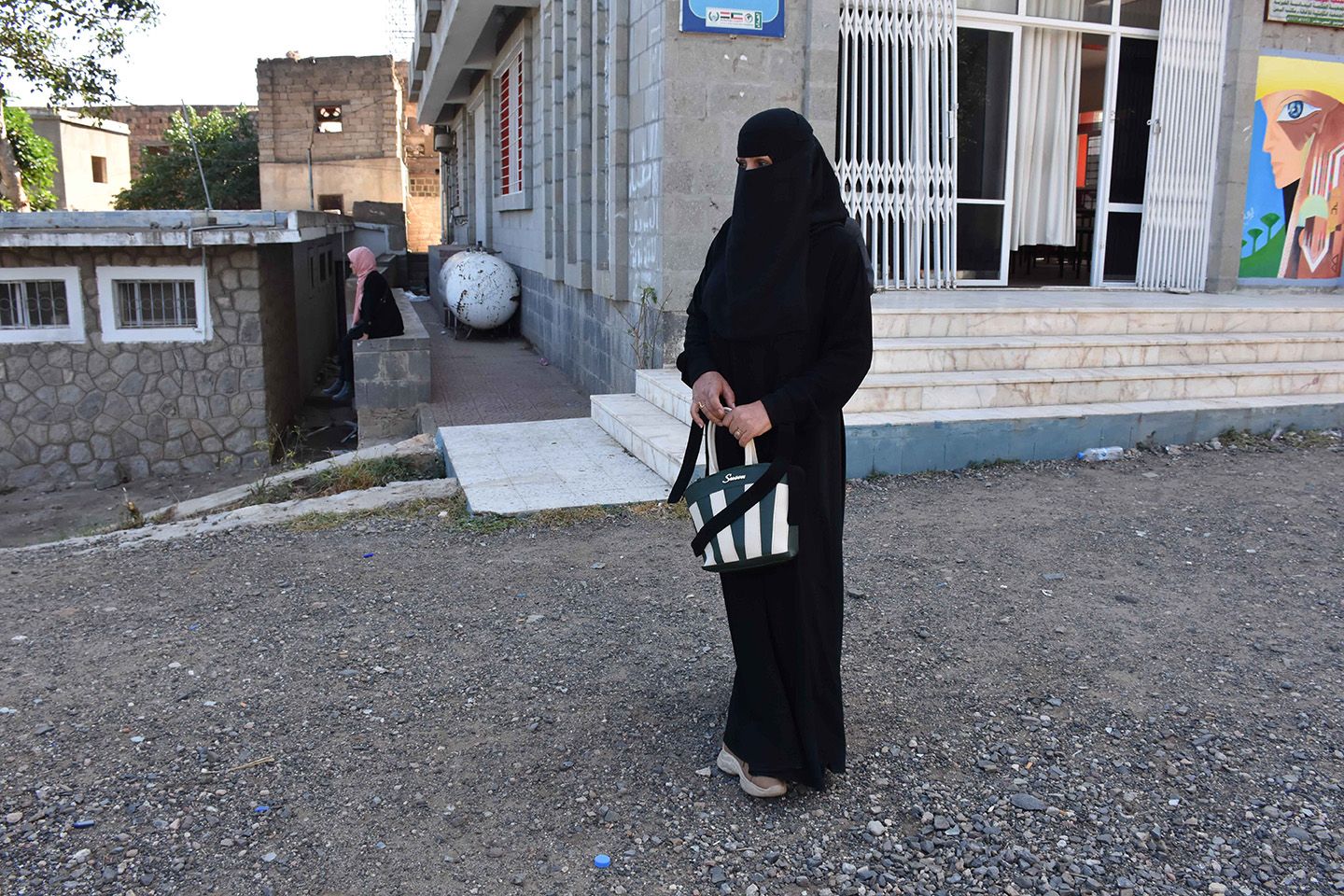Her early marriage at the age of 15 was not an obstacle to her completing her education. Despite the challenging societal norms and lack of recognition for women's rights, she worked tirelessly to improve the situation of women. Her relentless efforts not only transformed her own circumstances but also had a profound impact on the lives of numerous women within her region, ultimately paving the way for a more inclusive and equitable society.
Bishara Abdo Ahmed is a 40-year-old mother of three children, from the Al-Sinah small village in the Al-Maafer directorate, south of Taiz. After her marriage, she moved to the “Al-Sawa” area in the same directorate. She completed her basic education after her marriage and faced difficulties in that area because education there is forbidden for girls. Bishara says: “I got married early, as the marriage of young girls at that time was a custom in the region, and the girl had no choice but to marry at that age. On the contrary, I struggled beyond my strength, unlike my peers who got married and left education. I completed my education after my marriage and gave birth to two daughters while I was in basic education, then I enrolled in a teachers’ diploma, and I worked hard to reach my dream.”

New beginning challenge
She was the first employee when Al-Khiami Institute for Technical and Professional Education was opened in 2003. She was the first woman to enter the institute and she continued to complete her bachelor’s degree. When she recognized that society in her area prevents women from education and their most basic rights, she came up with the idea of establishing an organization or a branch of a Yemeni Women’s Union concerned with serving women.
Bishara says: ‘’When I came into close contact with the situation in the region, and women were deprived of their most basic rights, I decided to open a branch of the Yemeni Women's Union in the region. At that time, I reached out to Dr. Suad Al-Absi, formerly President of the Yemeni Women's Union.’’
Bishara faced many difficulties like bullying, sarcasm and vicious accusations under the justification “corrupting society”, but soon these stereotypes changed in the face of her determination. Because of this determination society backed her up and supported her strongly. She founded a Yemeni Women’s Union branch and has headed it since 2002. She was fortunate enough to have a building provided by a commercial company to the people of the region in 2006. She took the initiative to communicate with the local authority, Sheikhs and notables in the region and received the building. Then she approached organizations to donate to furnish the center and worked in the union with support of Oxfam Organization to empower women economically and socially, to train many illiterate women and she also continued her work at the Al-Khiami Institute for Technical and Professional Education.
After she opened the Union branch, accusations came back to haunt her back again from some notables and Sheikhs of the region. A phase in her life she described by saying: “I used to find explicit threatening messages from those in power in the region to close the women’s center; they considered my activity to be an openness that corrupts women. They tried to obstruct my work and close the center, but I did not give up. Rather, my determination increased, I ignored all threats, I opened the center and began my work normally.”
In front of the center’s gate, Bashara frequently would find the companions of the Sheikh of the tribe delivering a message to close the center. She replied that they should inform the Sheikh himself to come to the center and look at the situation of women in the area and look closely at their problems.
A water supply project was brought back to life.
In 2016 Bishara reopened a water project in the Shubat Al-Kalaibah area in Al-Maafer after a dispute over the project and its closure in 1983 through the Search for Common Ground (SCG) organization, where she was a volunteer among the mediators to resolve the dispute in that region, despite all the challenges and obstacles that other mediators faced in resolving the dispute. However, she chose to resolve this significant issue for the people with self-motivation and determination that she expresses by saying: “I chose to resolve the dispute over this project, and I insisted on doing so even though many advised me not to interfere because other people had intervened and failed, but I insisted on working on it.”
The water problem was the most crucial problem in Al-Maafer directorate where she entered into discussion with the parties conflicting over the water project - the project management and the people of the region - and held three public discussion sessions, reflecting what she had learned while attending a Conflict Resolution Course. She was constantly holding this course with people to try to bring the viewpoints closer together in order to come up with a clear vision of the needs of both parties. She even made a commitment to guarantee that the people would pay the water bills in phases for the project.

Bullying, Sarcasm, and Victory
Bishara faced several problems while intervening to resolve the dispute over the water project. Society did not accept a woman’s intervention to resolve a dispute between men. She used to hold meetings and gatherings with the men of the region. The attacks and sarcasm did not stop her but rather increased her determination to complete her tasks and reach a solution to the problems that the people of the region were suffering from. With regards to what she faced, she says: “Among the harassments that I faced were sarcasm words, such as “you play boss roll!” at men, or “you want to be Sheikh!” These words were thrown at me while I was working on resolving the conflict on a constant basis. As the society there forbids women to go out to work, to study, to mingle with men, but I did not fear or retreat in completing what I’ve started.’’
Bishara is the first and only one in her region who break the societal restriction that was limiting women's progress or access to their rights and conveyed the suffering of women due to their deprivation of the water project for years, having to fetch water using traditional methods on their heads. Some of them suffered injuries to the cartilage of the spine and bone friction. This suffering caused disabilities for some of the women as the women and children were fetching water in the mountains from the early hours of dawn. The men did not pay attention to this suffering, which Bishara used to resolve the conflict with the help of the women of the region, who stood strong in front of the men and spoke clearly about their suffering.
Bishara believes that women can reach their ambitions, prove themselves, and succeed in the community mediation process to resolve disputes. Even if they are in a society that does not accept their existence, nothing can stop them. She believes in the success of any woman as long as she has the will, sufficient understanding, and the available opportunity. “Women must have the strength, the skill to read reality properly and their financial independence so that they can own their decision”, she said.
Despite the difficulties that Bishara faced, she succeeded in reopening the Water project and three villages benefited from it. A success was crowned by the return of the girls of those villages to continue their education after they had dropped out due to their preoccupation with fetching water. This is a victory that is added to Bishara’s journey full of victories.